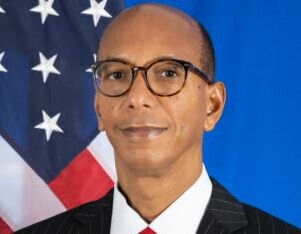The Alternate Representative of the United States of America for Special Political Affairs in the United Nations last week, at a UN Security Council briefing on South Sudan, said that the country’s leaders have yet to fulfill their commitments to the South Sudanese people.
Ambassador Robert Wood stated that little has changed since the failure of the parties to implement the peace agreement led to the extension of the transitional period in 2022.
“With only one month to go until SRSG Nicholas Haysom provides the Council with an assessment of its readiness to hold free and fair elections, the transitional government must act with urgency to implement the “critical mass” of preparations that UNMISS, the AU, and IGAD identified as necessary for elections to proceed,” he said. “The United States urges the transitional government to act with urgency to address pending election preparations mentioned in the Secretary-General’s February 24 report regarding ‘the constitution-making process, the type and number of elections, voter registration modalities, the inclusion of displaced people, an integrated election security plan, an election dispute resolution mechanism, and an election timeline.’”
Amb. Wood added: “In light of the failure of South Sudanese leaders to demonstrate the political will required to hold free and fair elections, the United States reiterates its position that allocating further financial resources for election preparations absent urgent action by the transnational government sends the wrong message.”
The diplomat said that assessed contributions should not be supporting an electoral process that – without urgent action by the transitional government – will not be free, fair, or credible. Future funding must be accompanied by a renewed push on the South Sudan peace process, and improved humanitarian access.
“As we stated in December, we want to focus on how the transitional government is spending its own money. The interruption of oil exports from South Sudan brings into focus how little visibility the people of South Sudan have on the transitional government’s oil revenue and how it is spent,” he specified. “For an electoral process to be credible, we must see the government devoting its own resources to support the electoral institutions it has established. The announcement of budgets for these institutions must be coupled with the actual disbursement of those funds to the National Electoral Commission, Political Parties Council, and National Constitutional Review Commission.”
Wood also said that open civic and democratic space is essential to a peaceful and credible electoral process.
“Insecurity in South Sudan continues to be a significant concern for the United States, as intercommunal violence poses the greatest threat to prospects for conducting credible elections,” he added. “We are alarmed by recent intercommunal violence in Warrap State and Abyei, which resulted in the reported killing of 80 civilians and two UNISFA peacekeepers. We call on the South Sudanese government to immediately investigate the death of the two peacekeepers and hold those responsible accountable.”
According to Wood, the humanitarian situation further remains a concern with over 500,000 refugees and returnees fleeing to South Sudan. He called on the international community to bolster the efforts of the United Nations and humanitarian organizations to help bridge humanitarian financing and resource gaps.
“Now is the time for the government to demonstrate its commitment to free, fair, and credible elections, ensure those responsible for violence are held accountable, and facilitate the delivery of humanitarian assistance,” Amb. Wood concluded. “Absent a demonstration of its readiness to meet these commitments, the transition government must bear responsibility for the consequences deficiencies will have on the security and prosperity of its citizens.”




